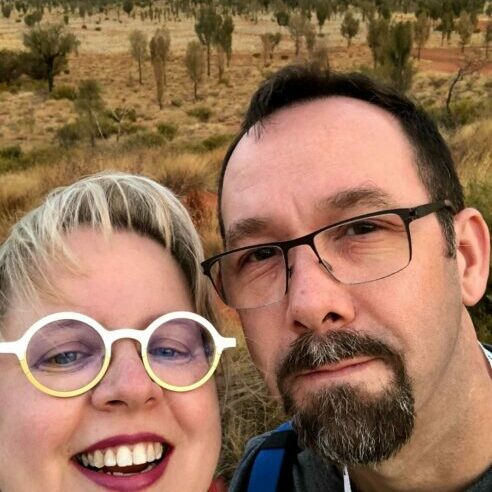Statistically, GT affects one in one million people, making me one of twenty-five people in Australia who suffer from this disease. Medical opinion is that I’m out of options. Today I wait patiently for a donor in the hope of a bone marrow transplant.
Against the backdrop of my immigrant family and relentless cultural tensions, Bloody exposes my struggle with GT, from diagnosis at age seven to my present circumstances as a mature woman.
My own mother believed that a combination of obsessive praying, glow-in-the-dark religious figurines, and holy water from Lourdes would cure me, while my father tried to keep me as pure as an unblemished apple. At school, nuns didn’t believe my disease was real, while classmates treated me as immoral when I challenged Catholic doctrine.
I met a man who love-bombed me into marriage, only to use GT and my upbringing as vulnerabilities to exploit—flying into controlled rages when I refused to bend. After years of financial and verbal abuse, we divorced when I finally met a man I felt I deserved. A man who supported me as a fully formed person, beyond the identity of a rare illness.
I’ve endured a succession of arrogant doctors, who instead of taking the opportunity to gain an informed understanding of GT, regarded me as a hysterical young girl who required psychiatric care. Setting the scene for decades of medical misogyny.
But Bloody isn’t just a memoir. It’s also a critique of our health, educational and religious institutions that do not and will not provide space or consistent care for chronically ill people. Bloody reveals how they cultivate a culture of shame and secrecy, exacerbating people’s vulnerability over illnesses they cannot control, and exposes foundations that urgently require systemic change to assist those who require lifelong care. Bloody adds another dimension to the conversation, with a unique perspective on a life lived with one of the rarest illnesses of them all.
